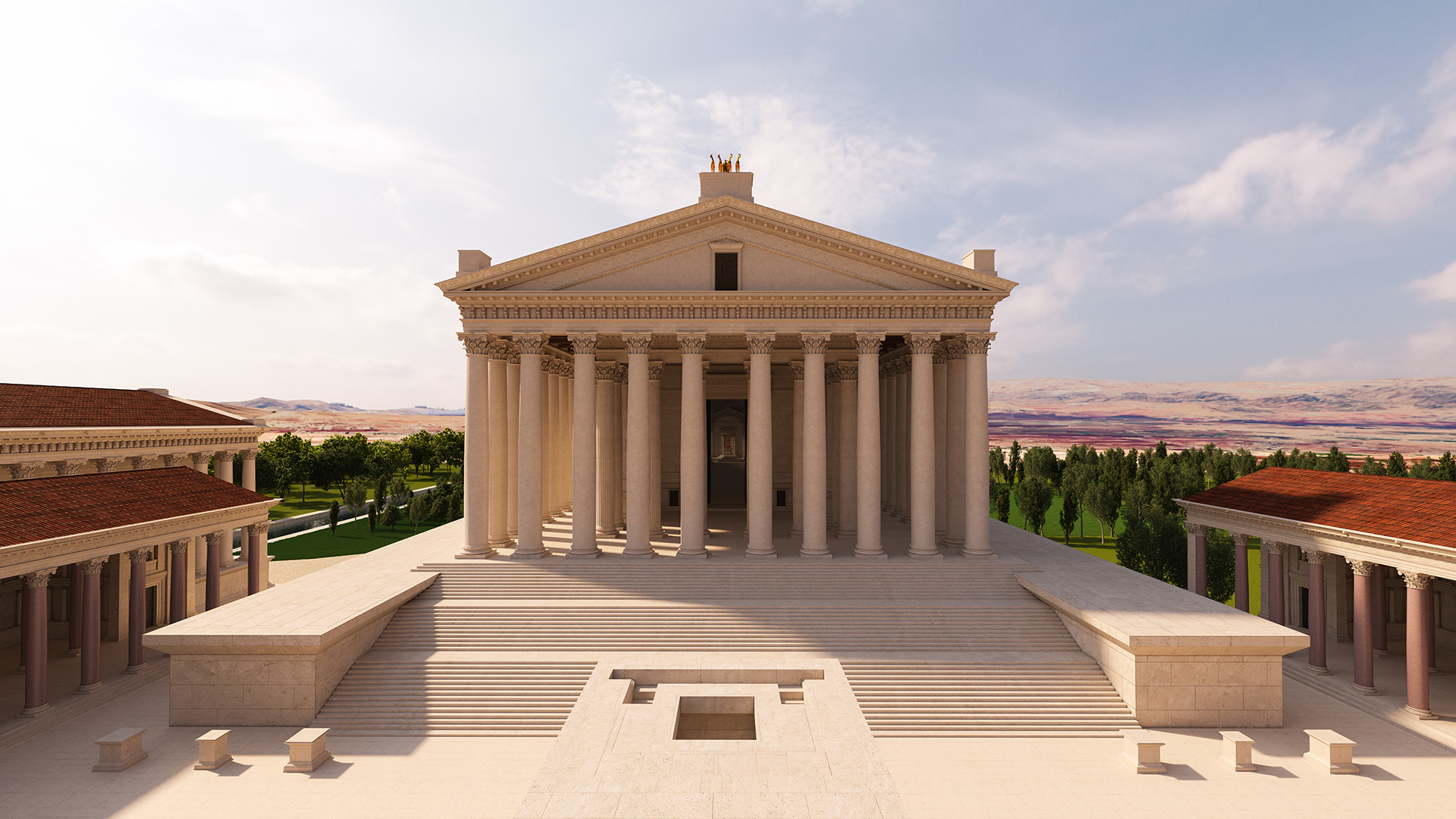Temples of Baalbek
About Temples of Baalbek
Baalbek, also spelled Baalbeck, Arabic Baʿlabakk, Greek Heliopolis, also called City of the Sun, large archaeological complex encompassing the ruins of an ancient Roman town in eastern Lebanon. It is located in the broad Al-Biqāʿ (Bekaa Valley) region, at an elevation of roughly 3,700 feet (1,130 metres) about 50 miles (80 km) east-northeast of Beirut. The complex was designated a UNESCO World Heritage site in 1984.
Nothing is known of Baalbek prior to the Greek conquest of Syria (332 BCE). After the death of Alexander the Great (323), the region fell to the Ptolemaic dynasty of Egypt, under which the town was called Heliopolis, probably for its Egyptian namesake. In 200 it was conquered by the Seleucid Antiochus III (the Great) and remained a Seleucid possession until the fall of that dynasty (64 BCE), at which time it came under Roman control. Several decades later it was made a Roman colony and was settled by a legion. Baalbek passed into Byzantine hands and then came under Arab domination (637 CE). From then until the 20th century it was administered by the various Muslim rulers of Syria. After World War I the French mandatory authorities included Baalbek in Lebanon.

The Temple of Bacchus is also Corinthian. Of the 42 columns comprising its peripheral colonnade, 23 have toppled. Its symbolic decoration shows that it was dedicated to the same agricultural gods as the great temple, but the prevalence of bacchic symbols in the interior probably indicates instead the practice of a salvational mystery religion. Other ruins include a round Temple of Venus, remains of the town walls, traces of a temple dedicated to Hermes, important Roman mosaics from private homes, a ruined mosque with reemployed antique material, and extensive Arab fortifications.

The modern town of Baalbek, adjacent to the ruins, is the principal urban centre of Al-Biqāʿ. Tourism has become an important component of the economy. A museum (opened 1998) is located in tunnels beneath the courtyard of the Temple of Jupiter, and the annual Baalbeck International Festival, with musical and dramatic performances, is held during the summer at the temple complex. Baalbek is located in one of the region’s most fertile farming regions. Pop. (2002 est.) 29,200; (2014 est.) 30,916.
